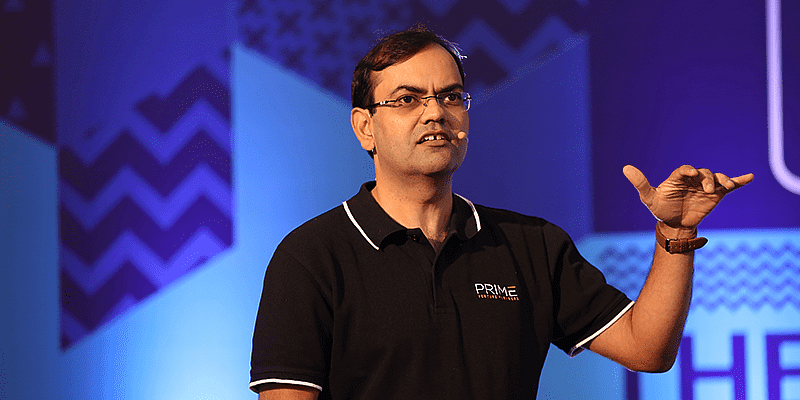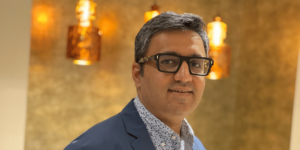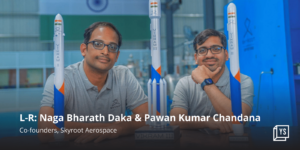I’m not much for business biographies but last year’s book from Bob Iger, The Ride of a Lifetime caught my fancy. A couple of years ago, I’d read Shoe Dog by Phil Knight. Both are iconic consumer companies that not only redefined what sport and entertainment meant but also defined what a “Brand” means in modern times.
When you hear of either brand, it triggers a positive emotional response. Just as they meant it to. The reason I loved both of these books is that they have facts, the story, and the spirit behind these companies and these leaders.
The other intriguing factor is that Bob is a “Professional” CEO and Phil was a Founding CEO. Both have been phenomenally successful, yet their stories are very different.

Bob’s story is about his meteoric rise from the trenches as an individual contributor to the CEO of a sprawling empire. Though they are intertwined, his journey and lessons learnt are more interesting than even the stories at Disney.
That said, he does talk about the eight principles that have served him well through his career, including becoming the head honcho at Disney and his run there.
Three of those principles caught my attention:
- Curiosity – Disney is the land of the Imagineers. Bob, too, believed in being insanely curious and always being willing to explore. Unsurprisingly, he suggests that curiosity is the mother of innovation. His curiosity about technology led him to Pixar and Steve Jobs. He also offers that you can’t innovate unless you are both curious and dare to fail. In his first board meeting after being anointed CEO, Bob made the courageous pitch to acquire Pixar.
- The Relentless Pursuit of Perfection – I learnt a new Japanese word from this book, Shokunin, which means the endless pursuit of perfection for the greater good. He talks about how we should have disdain for accepting mediocrity or make something for being “good enough”. He does not say pursue perfection at all costs but does argue that if one is in the business of making things, one should leave no stone unturned to make them great.
- Fairness – A culture that encourages curiosity, innovation and relentless pursuit of perfection, needs to have a high tolerance for genuine mistakes. Bob talks about having empathy for honest mistakes and assessing people fairly not to generate anxiety and fear in the ranks.
While Bob’s story is that of a manager who learnt the ropes, Phil Knight’s story is that of a passionate, driven, crazy entrepreneur who founded Nike in the 1960s. He started up when entrepreneurship was not in vogue.
There was no access to venture capital as we know it now, no startup ecosystem, and little global connectivity. Through sheer grit, determination, passion and some luck, he got the Nike rocketship off the ground.
His story is a rags-to-riches tale, laced with travel, spirituality and becoming a self-taught leader. He started with one year of travel from the Far East, to the Asian subcontinent, to Africa, to Europe and back to the US. Spiritually, he got exposed to glimpses of Buddhism, Zen philosophy, the Upanishads, and the Koran.
He also got his “shoe” business idea and found his first product from Japan during this long around-the-world trip. His life, and his business, taught him how to be great and “just do it”.
Let me share a few quotes from the book that moved me:
- Life is growth. You grow, or you die.
- You must forget your limits. You must forget your doubts, your pain, your past. You must forget that internal voice screaming, begging, “Not one more step!” And when it’s not possible to forget it, you must negotiate with it.
- You measure yourself by the people who measure themselves by you (from one of his favourite movies, Bucket List).
- We must all be Professors of the Jungle.
- Don’t tell people how to do things, tell them what to do and let them surprise you with their results.
- Beating the competition is relatively easy. Beating yourself is a never-ending commitment.
- We found pleasure, whenever possible, in focusing on one small task. One task, we often said, clears the mind.
- To study the self is to forget the self. Mi casa, Su casa. Oneness—in some way, shape, or form, it’s what every person I’ve ever met has been seeking.
There are so many exciting lessons of hardship, of learning, of the ups and downs of entrepreneurship that it is hard to summarise; you have to read the book.



![Read more about the article [Funding alert] Ecommerce enablement startup GoKwik raises Rs 40 Cr in pre-Series A led by Matrix Partners India](https://blog.digitalsevaa.com/wp-content/uploads/2021/09/Image0y7r-1630996586908-300x150.jpg)






